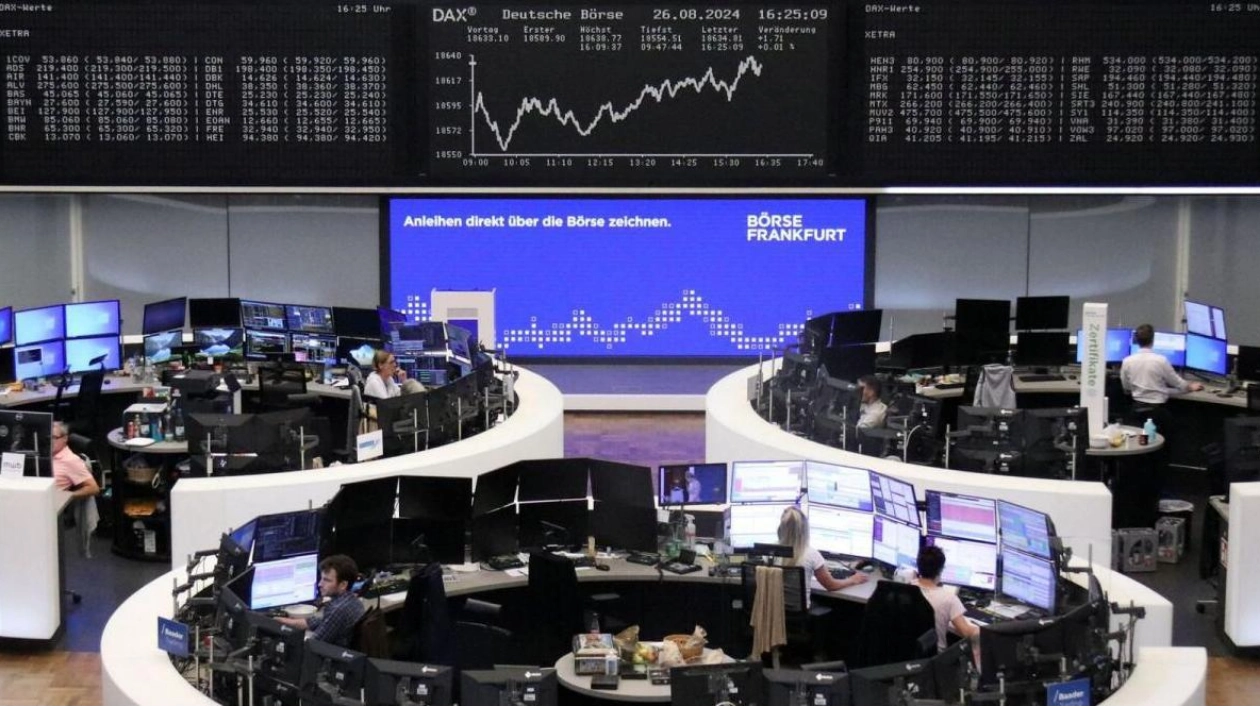Stock markets experienced minimal changes on Tuesday as investors eagerly anticipated indications regarding potential interest rate reductions for the upcoming month and the most recent financial outcomes from tech giant Nvidia. In New York, the primary indices initially declined but later recovered the majority of their losses, resulting in a nearly flat midday status. In Europe, London's FTSE 100 and Frankfurt's DAX concluded slightly higher, while Paris's CAC 40 ended lower. Oil prices relinquished some of their recent gains, and the dollar continued to face pressure due to anticipated narrowing interest rate differentials.
US Federal Reserve Chairman Jerome Powell's indication on Friday that a rate cut was imminent led to a surge in stock markets back to near-record levels, while the dollar plummeted to its lowest point in a year. This week, focus has shifted to the potential magnitude of the cut, with investors finding few reasons to aggressively drive prices. Markets are seeking "further clarity from US economic data regarding the extent the Fed might ease in September and the subsequent months," according to Jane Foley, head of foreign exchange strategy at Rabobank London, in an interview with AFP.
Analysts noted that trading volumes were low, partly due to caution and partly because of the upcoming Labor Day holiday weekend in the United States. Upcoming economic data releases include US second-quarter growth figures on Thursday, the Fed's preferred inflation measure on Friday, and employment data next week. Investors will scrutinize these figures for insights into the size of the promised rate reduction, expected to be announced at the Fed's next meeting on September 17-18. Traders are also awaiting Nvidia's latest earnings report on Wednesday, which could offer further insights into hardware demand driven by the AI boom.
Nvidia has a history of surpassing analysts' expectations but faces increasingly challenging benchmarks, according to Joe Mazzola, a strategist at Charles Schwab. "Nvidia's results could set the tone for the rest of the week." In European business news, Spain's government rejected a takeover bid from a Hungarian consortium for Spanish train manufacturer Talgo. Trading in Talgo shares was temporarily halted on the Madrid exchange, yet they still declined by nearly nine percent. In Asia, Hong Kong's market rose despite tech sector losses following Temu owner PDD's disappointing revenue figures and cautious outlook on future growth.
PDD's shares, listed in New York, fell by one percent on Tuesday, continuing their decline after a record 28.5 percent drop on Monday, which erased tens of billions of dollars from its market capitalization. In Hong Kong, competitors Alibaba and JD.com both dropped by approximately four percent. Oil prices had risen on Monday following an exchange of fire between Iran-backed Lebanese militant group Hezbollah and Israel, which heightened concerns about a broader conflict. Prices subsequently retreated, but Brent remained above $80 a barrel. The decline was characterized as a "likely technical correction" as prices "retained most of the recent gains driven by ongoing supply-side concerns amid a near total production halt in Libya, alongside escalating tensions between Israel and Hezbollah," according to Trading Economics.






